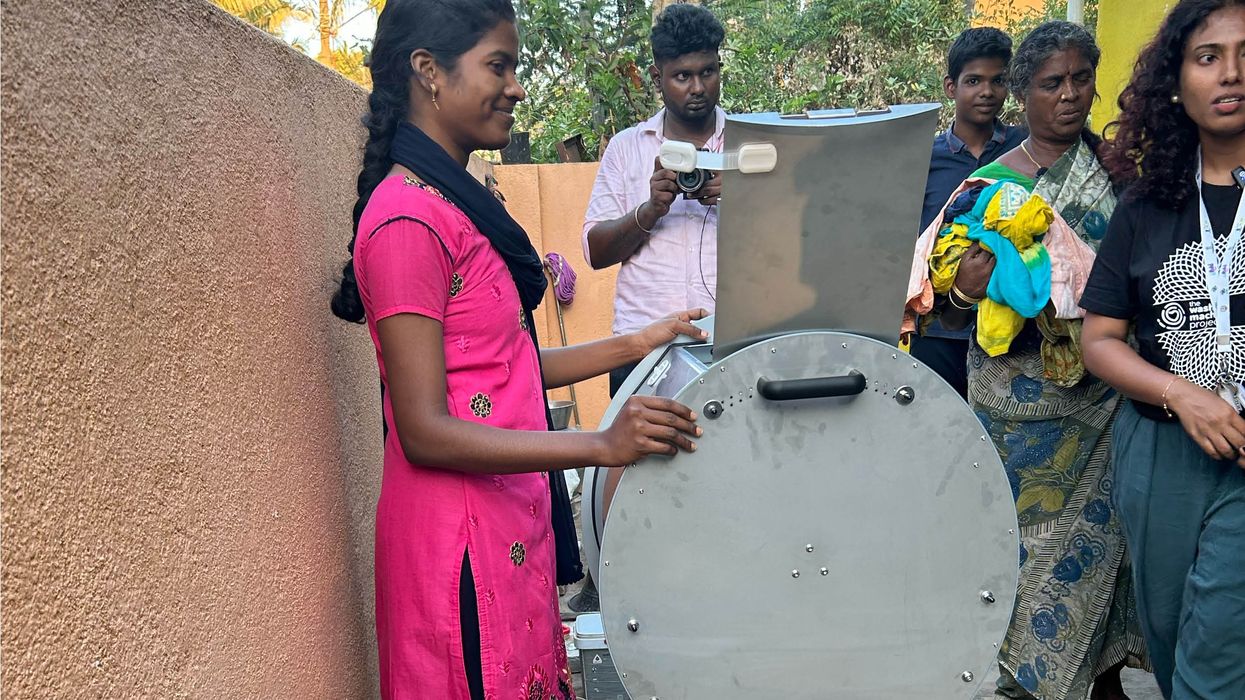In an effort to ease the burden of handwashing clothes, The Washing Machine Project in partnership with the Whirlpool Foundation has announced their plan to distribute 10,000 manual washing machines over the next five years.
This initiative targets low-income and displaced communities in India, Latin America, Mexico, and Africa, aiming to assist approximately 150,000 people.
Around 60% of the global population, which amounts to about 5 billion people, wash clothes by hand, often spending up to 20 hours per week on this task. This practice predominantly affects women and girls, reducing their time available for education and economic activities. The project's introduction of manual washing machines is expected to reduce the time spent on washing and improve productivity.
The project features the Divya washing machine, named after a neighbour of Navjot Sawhney, the founder of The Washing Machine Project. It is the world’s first flat-packable manual washing machine, designed to operate without electricity and reduce water usage by up to 50% compared to traditional methods.
Navjot Sawhney commented on the initiative, stating, "Together we are set to revolutionize laundry practices globally, paving the way for a more equitable and prosperous future for hundreds of thousands of people." The organization claims that using the Divya machine can decrease the time spent on laundry by up to 76%.
Pam Klyn, Whirlpool Corporation's Executive Vice President of Corporate Relations and Sustainability, noted the broader impact of the project, saying, “This initiative is about reclaiming time and improving lives for these individuals who will now spend much less time doing laundry.”
The rollout of the machines will focus on meeting the specific needs of the regions involved, with initial distributions planned for rural and urban populations in several countries, including India, Mexico, Brazil, the Republic of Congo, Kenya, and Uganda.





